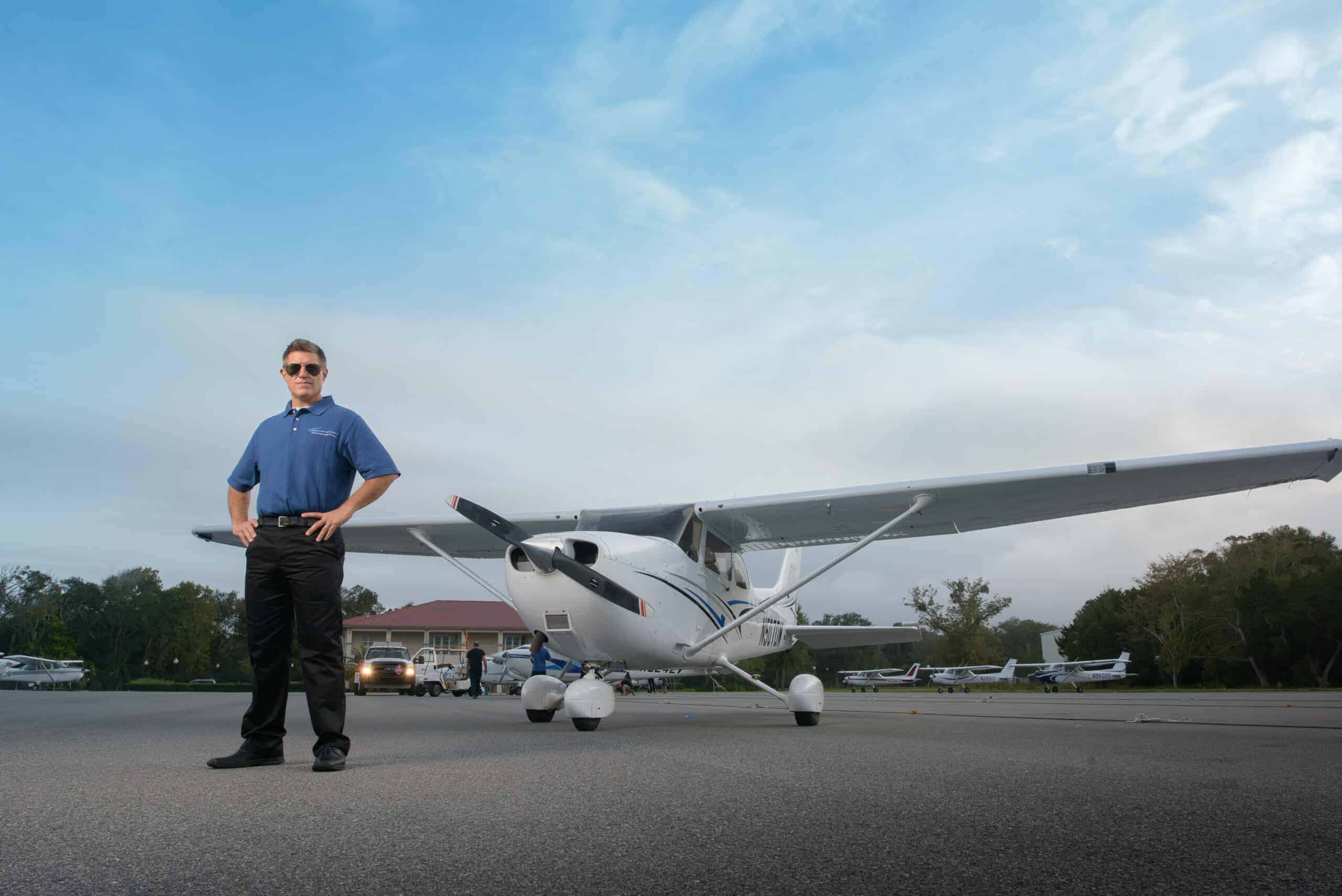For a lot of people pilots, flying an airplane isn’t only a job, it’s a calling. When your flight path takes you to one of the largest and most trusted cargo carriers worldwide this destination can be more meaningful. UPS pilots are more than just travel from point A to B. They are also responsible for time-sensitive cargo as well as ensuring the safety of their passengers under pressure.
If you’re fascinated with aviation and intrigued by the thought of contributing to worldwide logistics, here’s a closer overview of the steps to becoming an UPS pilot, including qualifications as well as training courses and what exactly the job entails.

Image credit: flightschoolusa.com
UPS Pilots: More than Just Flying
Unlike commercial passenger pilots, UPS pilots are responsible for moving documents, packages, and other essential items throughout international and national skies often with tight deadlines. Pilots in this type of environment are constantly on the move, whether they’re managing the most valuable cargo or operating complex meteorological systems. The UPS pilots demonstrate professionalism in their work, as well as technical expertise and reliability.
UPS pilots need to be adept in everything from emergencies and pre-flight plans to communicating with air traffic controllers and the ground. This job requires not just precision flying, but also sharp decision-making skills as well as sharp observation of the environment as well as a fervent dedication to safety.
UPS Pilot Qualification Requirements: Setting the Bar High
UPS does not allow anyone else to manage its fleet. UPS pilot qualification requirements are among the most rigorous in the cargo aviation industry and with good reason.
Candidates must hold a bachelor’s degree in aeronautics, aviation or a related field. Additionally, they must possess an active FAA Commercial Pilot’s License, which includes Multi-Engine and Instrument Ratings. Most UPS applicants have an average of 220 hours of experience and a maximum of 4,000, including some experience with turbine-powered aircraft.
Medical fitness is also a crucial role. Pilots must meet stringent FAA health standards, including good vision and the ability to pass comprehensive medical tests. Candidates must be U.S. Citizens or hold proper work authorization. They should also be into the age range between the ages of 23 and 65.
UPS believes in the value of real-world experience as well as technical expertise. These qualifications are intended to ensure that pilots can meet the requirements of long-haul, international operations while maintaining UPS’s reputation for speedy delivery and security.
UPS Pilot Training: Prepare for the Real World
UPS’s extensive pilot education program will prepare new hires for the demands of UPS’s aircraft and routes.
The training begins with ground school where pilots learn UPS-specific procedures, processes and expectations of the company. Following this, they are given simulator sessions that replicate real-world emergencies and flight conditions. Once pilots have reached proficiency in the simulator, they can begin Initial Operating Experience actual flights under the supervision by senior UPS pilots.
The programs for training go well beyond the basics of technical training. They prepare pilots for operational efficiency, crew coordination, and real-time problem-solving–critical components of UPS’s global delivery infrastructure.
How to Become an UPS Pilot How to Become a UPS Pilot: Charting Your Flight Path
If you’re interested in pursuing a UPS pilot position Your journey should begin with a quality flight training. Flight schools such as Florida Flyers Flight Academy provide the best foundational knowledge in aeronautics and navigation as well as safety protocols.
You can further enhance your abilities by adding hours of flight, particularly in turbine-powered aircraft. It also makes you more successful as an UPS candidate when you have gained experiences in roles that concentrate on safety, teamwork, or time-sensitive activities.
Conclusions – A career that provides more than Paychecks
It’s not an easy task to become an UPS pilot. It requires commitment to mastering the technical aspects of aviation and the ability to perform under pressure. For those who are up to the task, this is one of the most rewarding jobs in aviation. It comes with competitive pay as well as travel opportunities across the globe with a sense of security in the job, as well as the chance to play an essential role in maintaining the global economy. UPS’s cockpit might be the perfect fit for those looking to fly with purpose.